#ukrainian composers
Video
youtube
spending my evening listening to Ukrainian songs of 60′s and 70's and got mesmerized by this masterpiece again. it’s called “A Song Will Be among Us” - written and performed by Volodymyr Ivasiuk, 1971.
Do not hide the blue ray of your eyes,
Sing to me one last time.
I will take that song as a memory,
This song will be among Us
#another beautiful soul killed by soviet regime#ukraine 🇺🇦#ukrainian music#volodymyr ivasiuk#anz speaks#ukrainian composers#ukrainian musicians#ukrainian art
34 notes
·
View notes
Video
youtube
Music for cloudy days and overcast moods.
1 note
·
View note
Photo

Marcelle de Manziarly (deceased)
Gender: Female
Sexuality: Lesbian
DOB: 13 October 1899
RIP: 12 May 1989
Ethnicity: White - Ukrainian
Occupation: Pianist, music teacher, conductor, composer
#Marcelle de Manziarly#lesbianism#lgbt history#lesbian history#lgbt#female#lesbian#1899#rip#historical#white#Ukrainian#musician#teacher#conductor#composer
82 notes
·
View notes
Text
youtube
Vasyl Barvinsky (1888-1963) - Suite for Piano on Ukrainian Themes in C Minor: Variations and Fuga ·
Violina Petrychenko, piano
9 notes
·
View notes
Text
Oleksandr Yurchenko - Count to 100. Symphony #1 (edit 2001)
#Count to 100. Symphony#Count to 100#Recordings Vol. 1#Recordings Vol. 1 1991-2001#Oleksandr Yurchenko#composer#music#bandcamp#Ukraine#Ukrainian#drone#ambient#contemporary#Bandcamp#Shukai
23 notes
·
View notes
Text
my mom is the conductor in our church choir and on easter they always sing the paschal troparion in different languages (based on what my mom likes music-wise and what her small non-professional choir can pull off without too much tweaking)
it's gotta be my favourite part of the service so i wanted to share them! (if i butcher the romanization here or there sorry + let me know the correct spelling please)
the chant goes: christ is risen from the dead, / trampling down death by death, / and to those in the tombs / bestowing life.
greek (hristos anesti)
youtube
georgian (krist’e aghsdga) (my favourite one tbh)
youtube
mandarin chinese (復活節讚詞 / fùhuó jié zàn cí)
youtube
well, ukrainian, of course (khrystos voskres)
youtube
and while i was looking up these ones i stumbled upon a couple others which i liked so i gotta pile them in for good measure :')
arabic (al massih qam) (i believe the rest of what he sings is the stichera?)
youtube
finnish (kristus nousi kuolleista)
youtube
irish (tá críost éirithe as na marbh)
youtube
happy easter everybody!!
#the ukrainian one we sing is actually more beautiful but my mom kinda sorta composed it herself so there's no recording :(#mari rambles#mari songs
35 notes
·
View notes
Text
Anyway... I've been following this invasion since the lead up to it, don't think there's been a single day I didn't look at an update about it, unless I was just too tired and rolled that update in with the one from the next day
Point is, if you have question I may not have all the answers, but I have a basic understanding and would be happy to answer them
I just think that supporting Ukraine is something important in the same way that knowing about the Iranian people's struggles and supporting them against their government is important
I hope we're all on the same page here, but if you don't support Ukraine I've got a mountain of reasons why I do, and I'm happy to answer questions
#I mean in many ways it's just better to follow someone actually living there; they say stuff before it's reported on in the news#(if it gets reported at all)#but people may not know any Ukrainians on here and... I mean I really am happy to talk about this#also had a moment the other day where I realized that I was going#'well obvious people don't know the details of the invasion of Ukraine; but obviously everyone has a basic knowledge of wagner'#turns out they do not; spent like half an hour of the drive giving my mom a summary of wagner and their role in things#(I was joking about how while people complain about Ukrainian neonazis that wagner... it's basically packed to the gills with them)#(turns out that's not something everybody knows)#(ultra condensed summary if you don't know who they are)#(they're mercenaries who work for russia; they're literally named after hitler's favorite composer because he was hitler's favorite compose#(for a long time they were the only ones taking any ground in Ukraine)#(and then they tried to do a mutiny and march on moscow; and now their leader is chilling in Belarus)#(he wasn't punished for it or anything; cause it turns out putin is in fact a push over)#anyway... yeah... may not know all the details about everything#but turns out I may have a lot more specialized knowledge that I realize given not everyone knows who wagner are#so they probably don't know a lot of the rest of the stuff... so yeah... happy to talk about it if you've got any questions
0 notes
Text
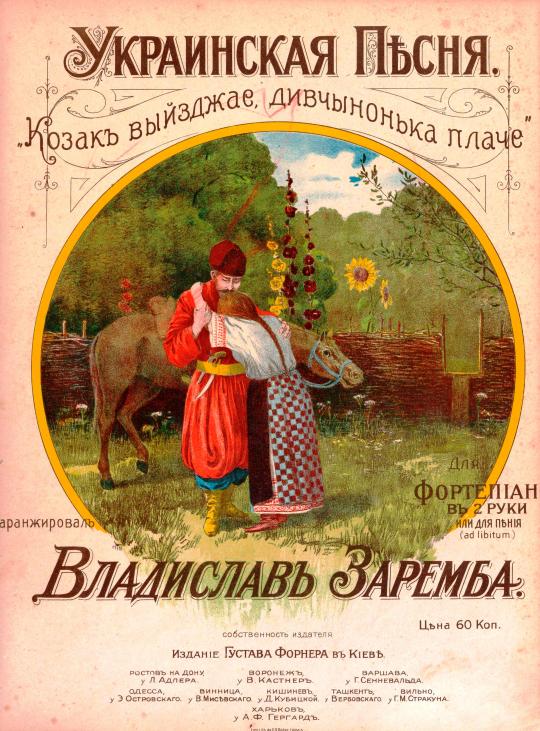
The Cossack is going away and the girl is crying...
The Ukrainian song, in musical adaptation of the Ukrainian/Polish composer, Władysław Zaremba (Владислав Заремба, 1833-1902). Music notation published in Kyiv, 1900.

From the collection of the Polish National Library (Mus.III.146.887):
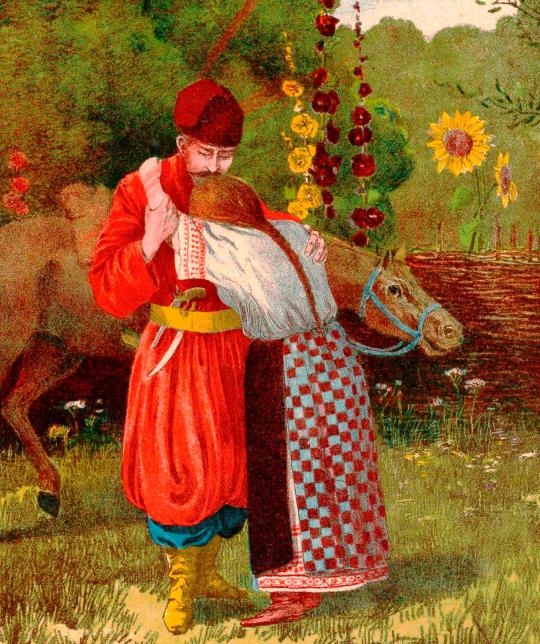
#ukrainian music#ukrainian art#ukrainian heritage#cossacks cossack heroes#cossack art#ukrainian history#ukrainian culture
64 notes
·
View notes
Photo
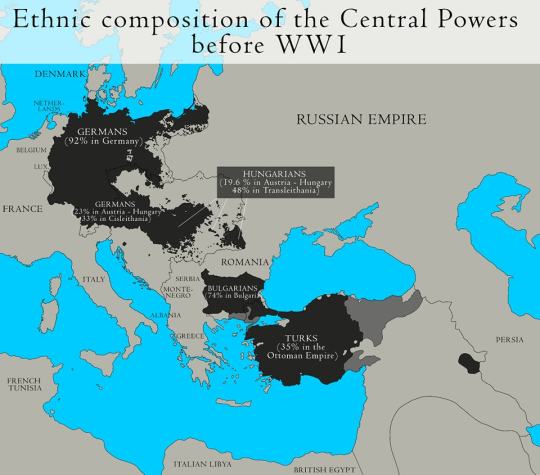
The Central Powers during World War I were composed of Germany, Austria-Hungary, the Ottoman Empire, and Bulgaria.
As the dominant power among the Central Powers, Germany had a highly industrialized economy and a strong military. It sought to expand its influence in Europe and globally. Germany had a homogeneous population, mainly Germans (92%), but also Poles and others minorities.
Austria-Hungary was a multi-ethnic empire, comprising numerous ethnic groups such as Austrians (23%), Hungarians (19.6%), Czechs, Slovaks, Poles, Ukrainians, Croats, Italians and others. The empire faced internal tensions due to nationalist aspirations of different ethnic groups seeking greater autonomy or independence.
The Ottoman Empire was a vast, multi-ethnic state that encompassed diverse regions in the Balkans and Middle East. Its population included Turks, Arabs, Kurds, Greeks, Armenians, and others. The empire was experiencing internal decline and faced challenges from nationalist movements within its territories.
Bulgaria, though smaller in size compared to the other Central Powers, played a significant role in the Balkans. Its population was predominantly Bulgarian, but it also had sizable minorities such as Turks and Greeks.
Overall, the ethnographic situation within the Central Powers was complex, with various ethnic groups coexisting within their respective empires. Nationalist sentiments and aspirations for self-determination among different ethnicities contributed to internal tensions and challenges for these powers during World War I.
by danmaps_org
78 notes
·
View notes
Text
DR. STEFANIA TURKEWICH // COMPOSER
“She was a Ukrainian composer, pianist, and musicologist. She is recognised as Ukraine’s first woman composer. She studied under multiple composers and musicians from 1914 til 1933. In 1933, she taught piano and became an accompanist at the Prague Conservatory and the year after, she defended her doctoral dissertation on the topic of Ukrainian folklore in Russian operas. She received her doctorate in musicology in 1934 and became the first woman from Galicia to receive a Doctor of Philosophy degree. She worked as a teacher of musical theory and piano at the Lviv Conservatory and became a member of the Union of Ukrainian Professional Musicians. She fled from the Soviets after the war, moving to southern Austria and then Italy, and then the UK (where she returned to composing).”
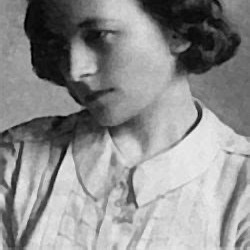
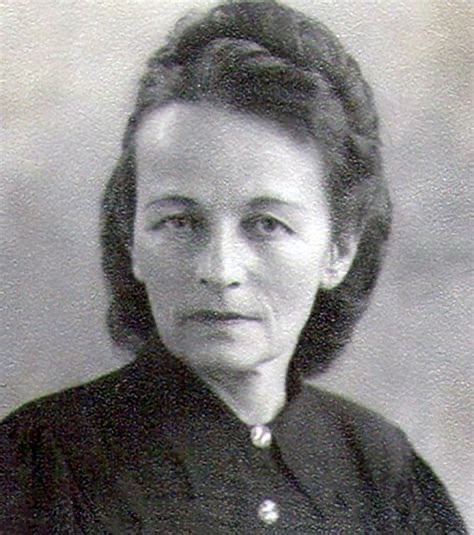
48 notes
·
View notes
Text
Always nice to be reminded that the people with bad judgment about the middle east also have bad judgment about the former Soviet space. Setting aside the fact that Russia's de facto president-for-life and other top officials given speeches about the need to cleanse Ukraine of undesirables, while Ukraine is governed by a Jewish guy who won a fair election as the opposition candidate, and focusing only on explicit Nazis rather than substantive ones -- as the Ukrainians have pointed out before, they would be happy to have check where all combatants remove their shirts and we count the Nazi tattoos, because they are way more common among the Russians, both their regular army and among the PMC named after Hitler's favorite composer because one of the founders is an explicit Nazi.
Claming that Ukraine is an "unsympathetic" party here, as LNH did, is telling about her, not about Ukraine.
62 notes
·
View notes
Text
My next post in support of Ukraine is:
A little different because Twitter was knocked out earlier this evening. I thought I had lost my entire Ukraine thread, which I started on day 1 of the full-scale invasion. I would have been absolutely LIVID if it was gone. So I posted on Blue Sky first, and when I went back to Twitter, everything was back, so my thread is still there. I'm soooo relieved. But anyway, today's post is:
While Twitter was down, I posted this evening's post on Blue Sky first, so doing it a bit backwards but in this evening's post, we're visiting the Ukrainian city of Trostianets (Тростянечь). Dating from the 17th century, the name comes from the Trostyanka River. It grew in population when Cossacks and peasants migrated there after suffering a defeat at the Battle of Berestechko in 1651. That was part of the Khmelnytsky Uprising. The city was captured by muscovy forces on March 1, 2022, and was occupied until March 26, 2022, when it was liberated by Ukrainian forces. Several buildings were destroyed by muscovy, including a house that Tchaikovsky stayed at in 1864 while composing the The Storm. They also mined a local hospital. There was also evidence of executions and tortures.
#StandWithUkraine
#СлаваУкраїні 🇺🇦🌻

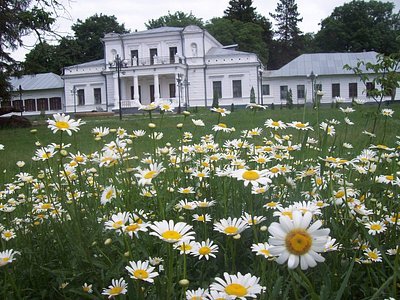
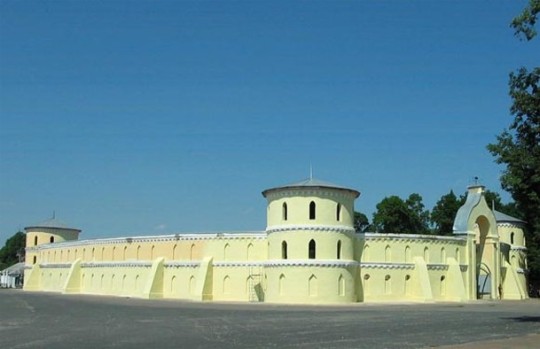
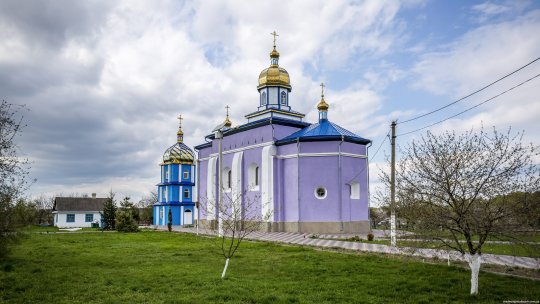
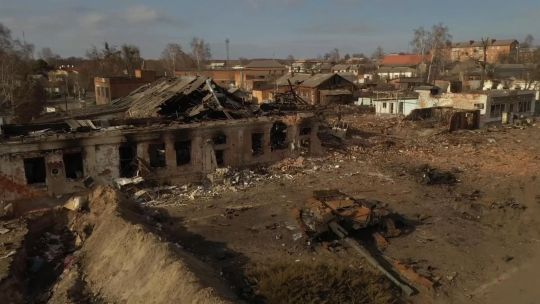
Adding that Trostianets is in Sumy Oblast. Apologies that I left that out. I do like to include what Oblast we're visiting. #СлаваУкраїні 🇺🇦🌻
82 notes
·
View notes
Text

@hussyknee saw your reply and figured it'd be easier to make a new post!
I suppose, C*rol of Bells is Christian, but only lyrics, written by Peter J. Wilhousky.
But in reality, Shchedryk is an ancient pre Christian folk song, the echo of times when new year was in spring, and the music was written down by ukrainian composer Mykola Leontovych.
Here is a very beautiful site about history of it, and how it became a part of American culture, and you can hear it in ukrainian there, as it should be.
514 notes
·
View notes
Text
youtube
The exquisitely romantic music of Viktor Kosenko (1896 - 1938) - Etüde op.8 in fis-moll
Violina Petrychenko, piano
5 notes
·
View notes
Photo
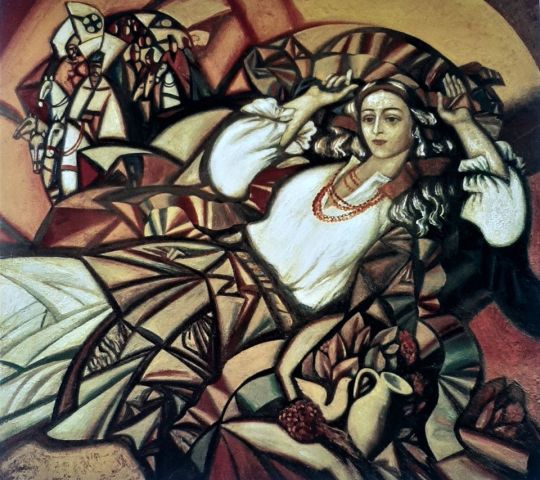
Marusia Churai by Feodosiy Humenyuk, 1986
Marusia Churai was a semi-mythical Ukrainian Baroque composer, poet, and singer. She has become a recurrent motif in Ukrainian literature and the songs ascribed to her are widely performed in Ukraine.
204 notes
·
View notes
Text
"If you take school and university textbooks, which list nations, it is written there that the French were born in the early Middle Ages, the English, the Poles, they all lead from there. And for some reason, we [Ukrainians] need to have origins from the 14th century. The question is, why? Was there any hiatus between the 12th and 15th centuries? No. The population has not changed...
They say, "Tatars used to go here"! The Tatars used to go here, but the Tatars did not sit down here because the Tatars and Mongols needed the steppe. They imposed taxes, and they themselves fled into the steppe.
It should be said that there is no hiatus, which Moscow archaeologists insisted on, and the absence of this hiatus was proven by Soviet archaeology in the 60s and 70s, that there was no depopulation here. Kyiv is an ancient Ukrainian city, just as Kyivan Rus is an ancient Ukrainian state. Why? Because general historical laws. The first stage of European ethnic groups existed - this is the tribal stage. From the 500s to the 900s, about 400 years, all these ethnic groups - the English, the French, the Poles, the Ukrainians, the Serbs - did not have a single ethnonym, they consisted of separate tribal unions. The tribal stage of existence is the entire early Middle Ages. The English consisted of Angles, Saxons, and Jutes. The Poles consisted of five tribes - the Kashubs, the Mazovshans, the Slenzyans, the Vislyans, and the Polyans. And from these tribes five dialects are now left in the Polish language. And the Ukrainians consisted of Polyans, Drevlians, Volhynians, Ulychis, Carpathian Croats... Europe is maturing somewhere in the year 900-1000, and all these peoples are creating their first aristocratic national states. The first English kingdom arises in the year 1000, around this time, the first Polish kingdom of the Piast dynasty arises. At the same time, the Prague principality of the Czechs emerged, at the same time, the Serbian state and Rus, with its centre in Kyiv, emerged. That is, this is a universal regularity. Since all these states that I have listed are considered Polish, English, Serbian or Spanish states in the medieval stage of development in the textbooks of these countries, we have no reason to doubt the Ukrainianness of Rus. Who wants to doubt - please break these universal laws.
You know that Meshko the First lived in the time of Volodymyr the Holy, and his son Boleslav the Brave - in the time of Yaroslav the Wise. So, Meshko the First and Boleslav the Brave are Polish kings, but try to tell someone that Volodymyr the Holy or Yaroslav the Wise are Ukrainians. You will be spit on! Moreover, by the Ukrainians themselves. And, by the way, all the walls of Sophia of Kyiv are covered with Ukrainian texts, Serhiy Vysotsky also spoke about this. Before his death, he called me and told me that there were Ukrainian texts there, but it was impossible to write about it. In the book he published, all this is translated into Russian.
What elements are there on the walls? Наприклад, клична форма української мови – «Петре», «коню», «князю», що питомо українське, в російській мові цього немає. Дієслова на «-ти» – іти, ходити. Дієслова на «-мо» – живемо, ходимо. Давальний відмінок однини чоловічого роду – князеві, Петрові, Іванові.
Vasiliy Klyuchevskii, a great russian patriot, when asked what language the prince of Kyiv spoke, he said: the language that grandmothers speak in the bazaars in Kyiv now. There are a huge number of these proofs in this regard.
Agatangel Krymsky also wrote about these linguistic features. He has an article about what language was spoken in princely Kyiv. He composed a phrase from the words of the 12th century and accompanied it with the following words: no Moscow professor will understand this phrase, and any grandmother from the Kyiv bazaar will. The phrase sounded like this: «Кицька сидить на призьбі, доки її окропом з глека не злякають або хорти лови не влаштують».
So, summing up, princely Kyiv was as much Ukrainian as London was English, Gniezno was Polish, and Paris was French. These were not Ukrainians, Frenchmen, or Poles as they are now. Because it is an organism, and the organism develops. And these were Ukrainians, Poles, and Englishmen at that medieval stage of development."
Leonid Zaliznyak
62 notes
·
View notes